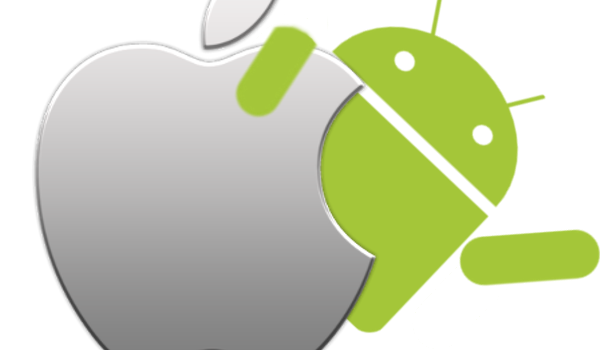Few battles throughout history have been as bloodied and brutal as the one fought between Android and iOS. Opinions are heated. Loyalties are fierce. As we look ahead to the release of iOS 8, armed with a fresh list of features and enhancements, let’s see how the two operating systems really compare.
Notifications
When Apple released iOS 7, they started to rival the notifications system Android had since the start. With iOS 8, Apple has added in actionable notifications –allowing you to deal with notifications directly (something Google added in 2012). Apple ups the ante slightly by allowing actionable items in the drop-down notifications as well not just in the notifications summary screen); third-party Android apps can add this functionality but it isn’t equivalent ‘out of the box. Finally, the addition of widgets in iOS 8 is long-overdue given that Android has supported third-party widgets in notifications for years.
Result: Android wins. Android clearly had the superior notification system first and while Apple has caught up and added a few stock ‘extras’, they aren’t revolutionary enough to secure a win here.
File Sharing
The big news in file sharing from Apple is the iCloud Drive. It’s basically no different than Google Drive or Dropbox –but offers less storage at the free price-tag (though for DropBox to beat iCloud Drive, you do have to earn some additional GB from referring friends).
Result: Draw. While one could argue that there is no reason to use iCloud Drive when you could use Google Drive –the services themselves are equivalent enough that I don’t believe there is a clear winner.
Search
Upgrades to Spotlight search means going beyond the device you are looking on, considering things like context and location. Results are diverse, meaningful and presented in an easy to review manner. Android has search capabilities, but they vary by device and aren’t typically as consolidated. Google Now offers all of the Spotlight functionality and more, but isn’t a part of the operating system the way Spotlight is.
Result: iOS wins. This is a tough one to evaluate, but tie native nature of Spotlight puts iOS ahead here.
Continuity
Handoff means you can be working in nearly any app on your Mac or iOS device and as long as they are signed into the same iCloud account, you can move back and forth between them and keep doing whatever it was you were doing. Android offers some of this functionality, but not as elegantly and more centered on web-experiences like maintaining open tabs in a web browser.
Result: iOS wins. Android has no clear offering to compete with the elegance of Handoff.
Photography
Apple understands that our smartphones have an important role in our day-to-day photography. With built in editing (with more than basic features), sharing (effortlessly) and now offering time-lapse options in addition –it is hard for Android to compete (without invoking third-party apps).
Result: iOS wins. Android may be simpler to use in many aspects, but iOS is far more feature-rich out of the box.
Keyboards
It’s about time that Apple upgraded the keyboards in iOS, including giving us the ability to install third-party keyboards. Anybody who has used SwiftKey or Swype on an Android device knows how much more enjoyable it is to ‘type’ with.
Result: Android wins. Apple may be playing catch up, but that’s all they did (failing to innovate further than Android already has).
Graphics
There is little doubt that OpenGL is a great graphics rendering tool, but Metal (new to iOS 8) is better if for no other reason than it is more efficient. Coupled with the diversity and quality of Android hardware, it’s difficult to create a gaming experience that is exceptional across all of their devices.
Result: iOS wins. Apple has been ahead of the curve against Android when it comes to mobile gaming and it continues to do so now.
There are lots of other odds and sods in the comparison game… Apple implemented Touch ID first, but Samsung extended it to third-party apps first. Apple has family sharing with parental controls while Android hasn’t fully addressed this inevitability. Messaging received a number of upgrades but Android doesn’t really have the same built-in messaging service to compete against. Similarly, the pairing of iOS to Mac OS is a definite benefit for brand-loyal users but with Android desktop not much of a reality for most people it isn’t relevant or comparable (yet).
The important thing to remember is that no matter which side of the fence you fall on, innovation is motivated by competition. It is in the best interest of everybody that these two operating systems continue to battle each other as they have.

